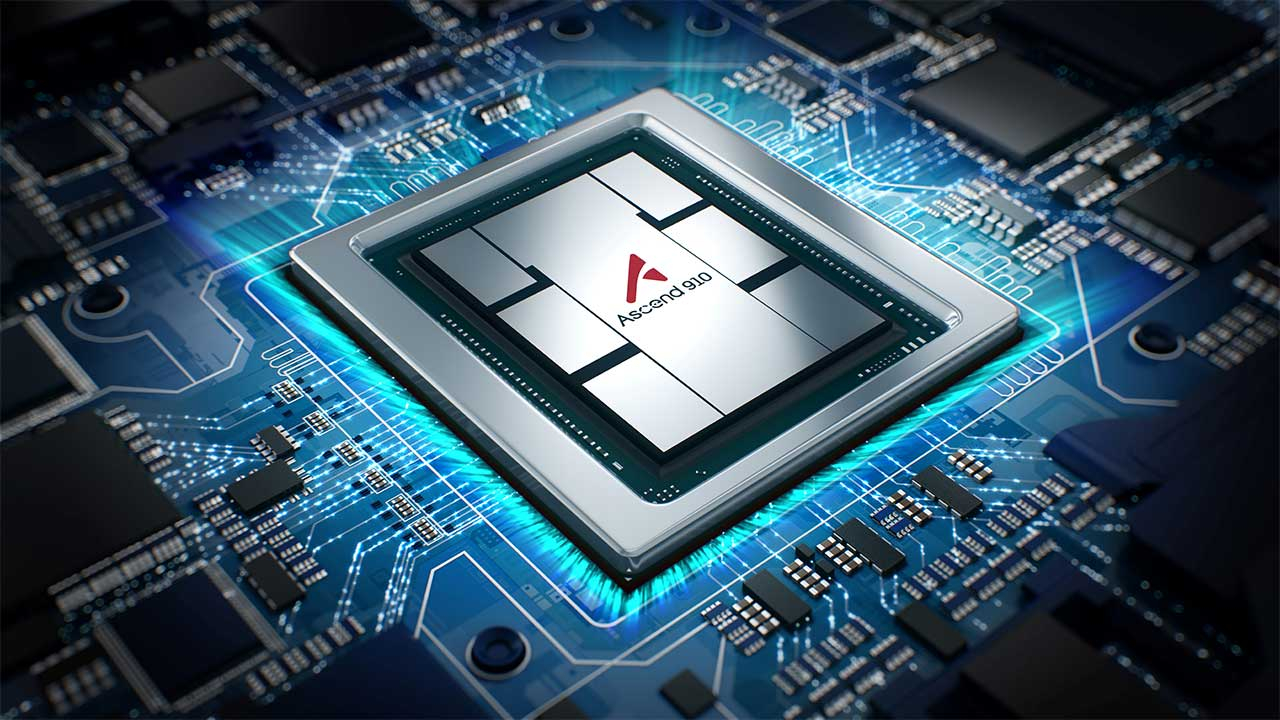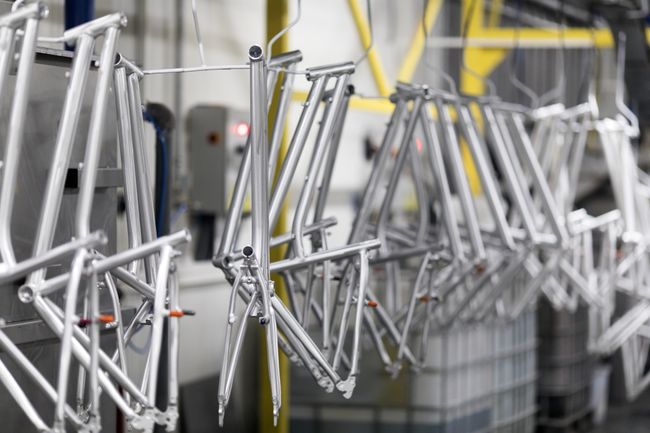Exclusive AI Chip Development: Huawei Takes On Nvidia

Table of Contents
Huawei's AI Chip Strategy: A Deep Dive
Huawei's Ascend Series: Architecture and Capabilities
Huawei's Ascend series of AI chips represents its core AI strategy. These chips are designed as AI accelerators, optimized for high-performance computing tasks critical for machine learning and deep learning applications. Their architecture differs significantly from Nvidia's offerings, focusing on specific strengths.
- Processing Power: The Ascend series boasts impressive processing power, capable of handling massive datasets and complex algorithms. Specific figures vary by model, but benchmarks indicate performance comparable to, and in some cases exceeding, certain Nvidia GPUs for specific workloads.
- Energy Efficiency: Huawei emphasizes energy efficiency in its Ascend chip design, crucial for deploying AI in power-constrained environments like edge devices and mobile applications. This is a key differentiator in certain market segments.
- Target Applications: Ascend chips target a wide range of applications, including:
- Cloud computing: Powering large-scale AI training and inference in data centers.
- Edge devices: Enabling AI at the network edge for real-time processing and reduced latency.
- Mobile devices: Integrating AI capabilities into smartphones and other mobile devices.
Compared to Nvidia's A100 and H100 GPUs, the Ascend series may offer advantages in specific areas like power efficiency for edge computing, while Nvidia might retain an edge in raw processing power for certain deep learning tasks. Direct comparisons require careful consideration of the specific benchmark and workload.
Manufacturing and Supply Chain Challenges
Huawei's progress is significantly hampered by US sanctions, restricting its access to advanced manufacturing technologies and key components. This presents a major challenge to its long-term competitiveness.
- Limitations: Sanctions limit Huawei's access to leading-edge fabrication processes, forcing reliance on less advanced nodes. This directly impacts the performance and capabilities of its AI chips.
- Alternative Solutions: Huawei is actively pursuing alternative solutions, including strengthening partnerships with domestic manufacturers in China and investing heavily in indigenous technology development to reduce reliance on foreign suppliers.
- Long-term Implications: The ongoing restrictions create significant uncertainty regarding Huawei's ability to compete effectively with Nvidia in the long run, especially in areas requiring cutting-edge chip manufacturing processes.
Software and Ecosystem Development
A successful AI chip requires a robust software ecosystem. Huawei is actively building this around its Ascend series, though it still lags behind Nvidia's mature CUDA platform.
- Software Frameworks: Huawei offers its own frameworks and tools to support development on Ascend chips. These tools aim to simplify the process of deploying AI models and applications.
- Developer Tools: The availability and quality of developer tools are crucial for attracting and retaining developers. Huawei is investing in improving its developer tools and documentation to enhance the overall developer experience.
- Community Support: Building a thriving developer community is essential for long-term success. Huawei is working on fostering a strong community around its Ascend chips, though it has some way to go to match Nvidia's established developer base.
Market Penetration and Target Applications
Huawei is targeting several key markets for its AI chips:
- Telecommunications: Leveraging its strong position in the telecom sector to integrate Ascend chips into its networking infrastructure and 5G solutions.
- Cloud Services: Providing AI-powered cloud services based on its Ascend-powered data centers.
- Autonomous Driving: Exploring opportunities in the rapidly growing autonomous driving market, where high-performance AI processing is crucial.
While Huawei has achieved some success in deploying its chips in these areas, significant market penetration remains a challenge. Future growth depends on overcoming manufacturing constraints and building a larger, more vibrant software ecosystem.
Conclusion: The Future of AI Chip Development – Huawei's Impact
Huawei's journey in developing exclusive AI chips has been marked by both significant progress and substantial challenges. While its Ascend series shows promise in performance and energy efficiency, the US sanctions create persistent hurdles. The competition between Huawei and Nvidia will undoubtedly shape the future of AI accelerator technology, influencing the development of machine learning and deep learning applications. Huawei's ability to overcome these obstacles and establish a strong foothold in the global AI chip market remains to be seen. Stay tuned for updates on Huawei's exclusive AI chip development and its impact on the broader AI landscape. Explore the competitive landscape of AI accelerators further; the race for AI dominance is far from over.

Featured Posts
-
 Los Angeles Palisades Fire A List Of Celebrities Who Lost Homes
Apr 29, 2025
Los Angeles Palisades Fire A List Of Celebrities Who Lost Homes
Apr 29, 2025 -
 From Scatological Data To Engaging Podcast Ais Role In Content Transformation
Apr 29, 2025
From Scatological Data To Engaging Podcast Ais Role In Content Transformation
Apr 29, 2025 -
 The Ethics Of Betting On The Los Angeles Wildfires A Growing Concern
Apr 29, 2025
The Ethics Of Betting On The Los Angeles Wildfires A Growing Concern
Apr 29, 2025 -
 Assessing The Risk Russias Military Actions And European Stability
Apr 29, 2025
Assessing The Risk Russias Military Actions And European Stability
Apr 29, 2025 -
 Israel Faces Pressure To Lift Gaza Aid Ban Amidst Shortages
Apr 29, 2025
Israel Faces Pressure To Lift Gaza Aid Ban Amidst Shortages
Apr 29, 2025
Latest Posts
-
 Bob Dylan And Billy Strings Outlaw Music Festival Portland 2024
Apr 29, 2025
Bob Dylan And Billy Strings Outlaw Music Festival Portland 2024
Apr 29, 2025 -
 Albertas Dow Project Delay Collateral Damage From Tariffs
Apr 29, 2025
Albertas Dow Project Delay Collateral Damage From Tariffs
Apr 29, 2025 -
 Rosenberg Critiques Bank Of Canadas Cautious Approach
Apr 29, 2025
Rosenberg Critiques Bank Of Canadas Cautious Approach
Apr 29, 2025 -
 David Rosenberg Was The Bank Of Canada Too Timid
Apr 29, 2025
David Rosenberg Was The Bank Of Canada Too Timid
Apr 29, 2025 -
 Austin City Limits Willie Nelson And Family Concert Details And Tickets
Apr 29, 2025
Austin City Limits Willie Nelson And Family Concert Details And Tickets
Apr 29, 2025
